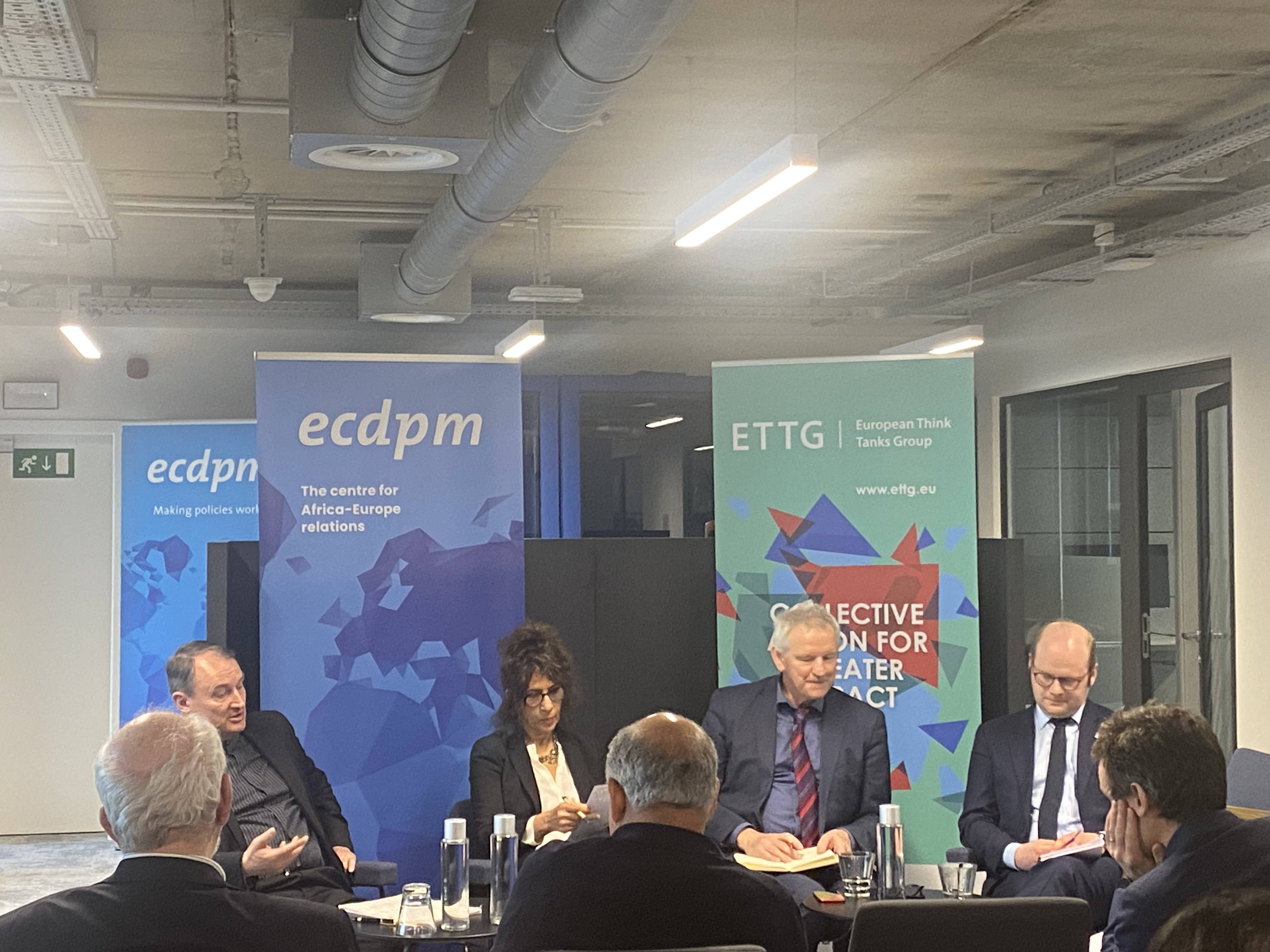On February 15th, the ECDPM hosted the presentation of the book “Aftermath of war in Europe - The West vs. the Global South” which takes into consideration the Global South’s perspective on the global “polycrisis” spurred by Covid-19, climate change, and inflation brought by the war in Ukraine.

Len Ishmael, Author and Senior Fellow at the Policy Centre for the New South
Christian Bachmeier, Co-author and Asia expert
Kevin Verbelen, Co-author, international trade expert and lawyer
The Global South lost 13% of the GDP last year and is about to lose one decade of growth as in 1982 when Iraq invaded Iran. Therefore, the solutions pursuing Global South’s interests are based on the need for multipolarity between the West (US and EU) and the East (China and Russia) as they are aware of shifting IR contexts (the SCO and the BRICS to bypass Suez and European rules): they have acknowledged that the Global South cannot stay poor forever as they are the majority and the rules of the game are changing. For example, in 1953 many countries of the Global South were newly independent and poor, but some of them, such as the Arab Gulf states, are the richest on the planet and demand to be heard.
As for South East Asia (SEA), the Covid-19 crisis has shaped the perception of certain policies, such as in the case of vaccines that were not provided by Europe, and eventually, China found the opportunity to intervene and send its vaccines (China had intervened also in the massive financial crisis in 1997). Moreover, the Russia-Ukraine war is mostly seen as a European battle with unclear reasons. SEA countries struggle with economic isolation and sanctions against Russia because they feel a double standard in using these sanctions while also having some dissatisfaction with the current international system. The impact of the pandemic and war on SEA countries can be seen in trade, security, and international politics under the ASEAN umbrella. First, they are worried about the consequences that US-China competition could have on multilateral institutions that have benefitted them; second, they prefer to keep diplomatic relations with all regions worldwide in order to avoid hot areas in Asia (like Taiwan); third, there has been a multiplication of international fora (SCO, BRICS…) and since many countries have gained legitimacy, even if they are not full democracies yet, they feel they do not need to be lectured about governance. Instead, with Covid-19 management and war in Ukraine, they see the need to acknowledge the declining Western governance.
The Carbon Border Adjustment Mechanism (CBAM) envisaged by the EU to help reduce the risk of carbon leakage, by encouraging producers in non-EU countries to green their production processes, can cause a backlash. China has a similar mechanism but the carbon prices are higher in the EU (€0.02 in China VS €90 in the EU), therefore a company could decide to delocalize abroad in order not to follow the rules. By not involving the partners from the start, the CBAM of the EU could be seen by India and Australia as a protectionist tool to preserve European production for European consumption. Perhaps, a wiser move would have been to rally partners around the carbon issue, hence upholding multilateralism and preventing forms of retaliation against the EU private sector in the worst-case scenario.
.




